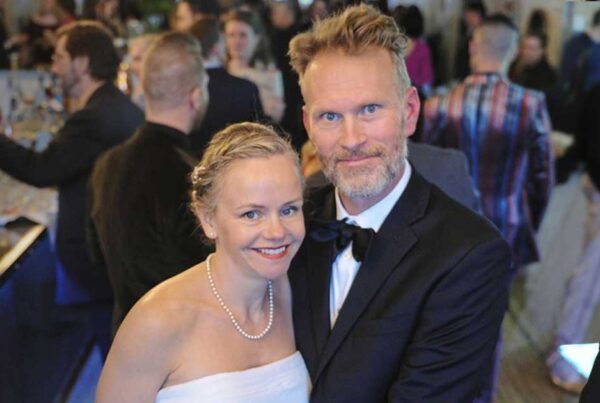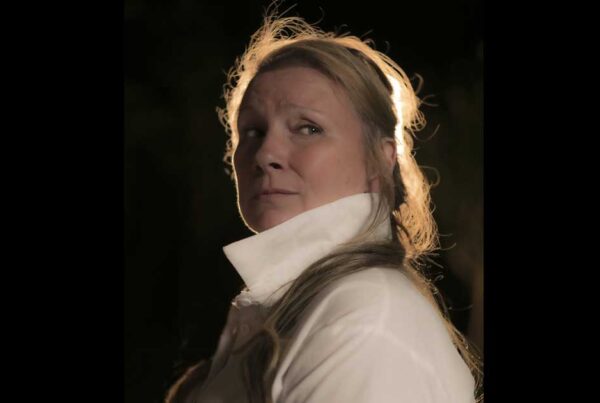
Pittsburgh Post-Gazette – The spirited sounds emanating from the white tent, heard by the Frick Park lawn bowling green, must be confusing to curious passersby, perhaps attracted by the beautiful music and unaware of the goings-on inside.
There are sparks of delight and confusion, as well as cultural awakening, happening inside, too.
Quantum Theatre’s world-premiere folk opera, “Looking for Violeta,” rolls through the life of Chile’s Mother of Latin American Music, Violeta Parra, in a breathless tapestry of sketches, stitched together with music, poetry and dance.
At 80 minutes without an intermission, it’s a lot to take in and leaves much left unsaid. The advice here is, save the details for a Google search, if you can wait, or arrive early enough to digest the program notes. Then give yourself over to Quantum’s musical quest for Violeta Parra — a human flame of talent and inspiration, she ignited a movement first in Chile, and then the world, and her light was extinguished far too soon.
With original compositions by Emily Pinkerton, “Looking for Violeta” is told from Parra’s impoverished childhood to the politically charged Nueva Cancion (New Song) movement to her death, and beyond. We see Violeta through the eyes of her older brother, Nicanor (played by baritone Eugene Perry), who died last year at age 103.
In this production, Nicanor has arrived in the afterlife. He, too, is looking for Violeta, trying to solve the mystery of her suicide at age 49.
In the often raw poetic language of the decima, we learn that the siblings’ father died young, their mother was ill, and the girls in the family sang to make ends meet. It is Nicanor who sees a bright future for his sister, telling her, “I know your guitar has a plan.”
“Looking for Violeta,” directed by Karla Boos from a book by Maria Jose Galleguillos, takes us through the artist-activist’s ups and downs in love and as a mother, even as her star begins to rise. She becomes beloved as a performer and preserver of Chilean folk music traditions, bringing her worldwide recognition. Personal tragedy strikes, and she goes on, as a political protest singer and a host for other artist-activists in a big-top style tent — perhaps from her days in the circus and the inspiration for the setting in Frick Park.
Parra’s problems and her country’s — leading up to the election of Salvador Allende and the coup that brought in the brutal reign of Gen. Augusto Pinochet — take a toll before her life’s abrupt end. Her woes in and out of love are expressed in the coupling and uncoupling of Carolina Loyola-Garcia as Violeta and Jerreme Rodriguez as her various lovers. The actors are always dancing around each other, figuratively and literally, two graceful and fiery performers looming large in the intimate space.
Where and when we are isn’t always clear — I first caught a mention of “Chile” more than a half-hour in — although large quilted “flashcards” help us along, with words such as “HOME,” “THE CITY,” “CIRCUS,” “AMOR.” These are just a few of the stops on Violeta’s way to political awakening and becoming the champion of “The People’s Music.” Something more, to indicate the actual city or a date (the 1950s get a mention) would be more grounding amid the hectic pace.
However, if you are unfamiliar with Parra’s music or don’t know that she was an inspiration to Joan Baez and countless others, it works as well to allow Pinkerton’s music — original, yet with an embrace of familiarity — to wash over you.
She plays the 25-string guitarron, guitar and charango, sometimes fronting the superb band (Jon Banuelos, Erik Lawrence, Jose Layo Puentes and Ryan Socrates, under the musical direction of Daniel Nesta Curtis). At other times, she moves through the action as a troubadour or participant in Parra’s life.
The performers are always on the move in the platformed but tight space in a corner of the tent. Weaving in and out as family members and others are Kelsey Robinson and Raquel Winnica Young, lending their lovely voices to the mix. Rodriguez has become an always welcome musical-theater presence among Pittsburgh companies, and accomplished Pittsburgher Perry always brings an emotional depth along with his commanding baritone.
As Violeta, the multitalented artist Loyola-Garcia reunites with frequent collaborator Boos for what seems to be her most personal performance yet, embodying a folk hero of her native Chile.
Parra’s mysterious suicide is a haunting event to this day and is played out in jarring fashion here. Yet her music and movement remain a “living tradition,” as referenced in the Pinkerton’s program note. It is not giving anything away to say that Parra’s most famous song, “Gracias a La Vida” (“Thanks to the Life”), plays a role in helping us to understand her worldwide impact.
Unless you enter Quantum’s exploration well-versed in all things Violeta, a bet here is that you will leave on a quest of your own, looking for her through her music and the movement it inspired.




